The birth of Jesus, a pivotal event in Christian history, is celebrated globally as Christmas. It marks the beginning of a journey that would shape civilizations and inspire billions. While the exact date remains uncertain, the story itself is rich with symbolism and significance, holding diverse interpretations across different faiths and cultures. Let’s delve into the narrative and explore its enduring impact.
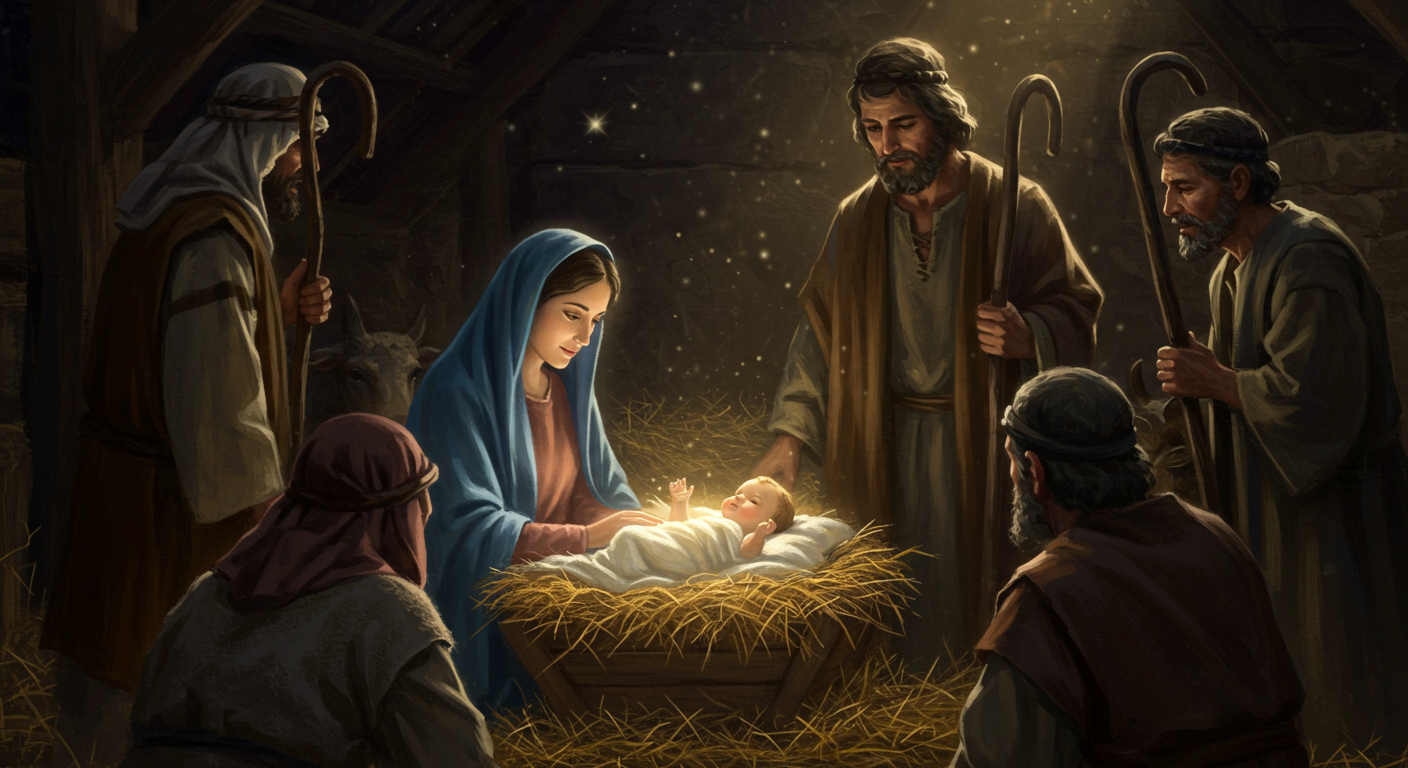
The Annunciation: Gabriel’s Message
The story commences with the angel Gabriel’s annunciation to Mary, a humble virgin betrothed to Joseph. Gabriel’s message, proclaiming Mary’s selection to bear the Son of God, is a cornerstone of the nativity narrative. Learn more about the role of angels in Christianity.
Mary’s Conception and Faith
Mary’s response, characterized by faith and acceptance despite the extraordinary nature of the revelation, exemplifies her devout character. Her ‘fiat,’ or ‘let it be,’ demonstrates profound trust in God’s plan.
Joseph’s Dream and Divine Guidance
Joseph, initially perplexed by Mary’s pregnancy, receives divine guidance through a dream, revealing the truth of Jesus’ conception. This dream assures Joseph of God’s role and his place in the unfolding events. Read more about the role of dreams in biblical narratives.
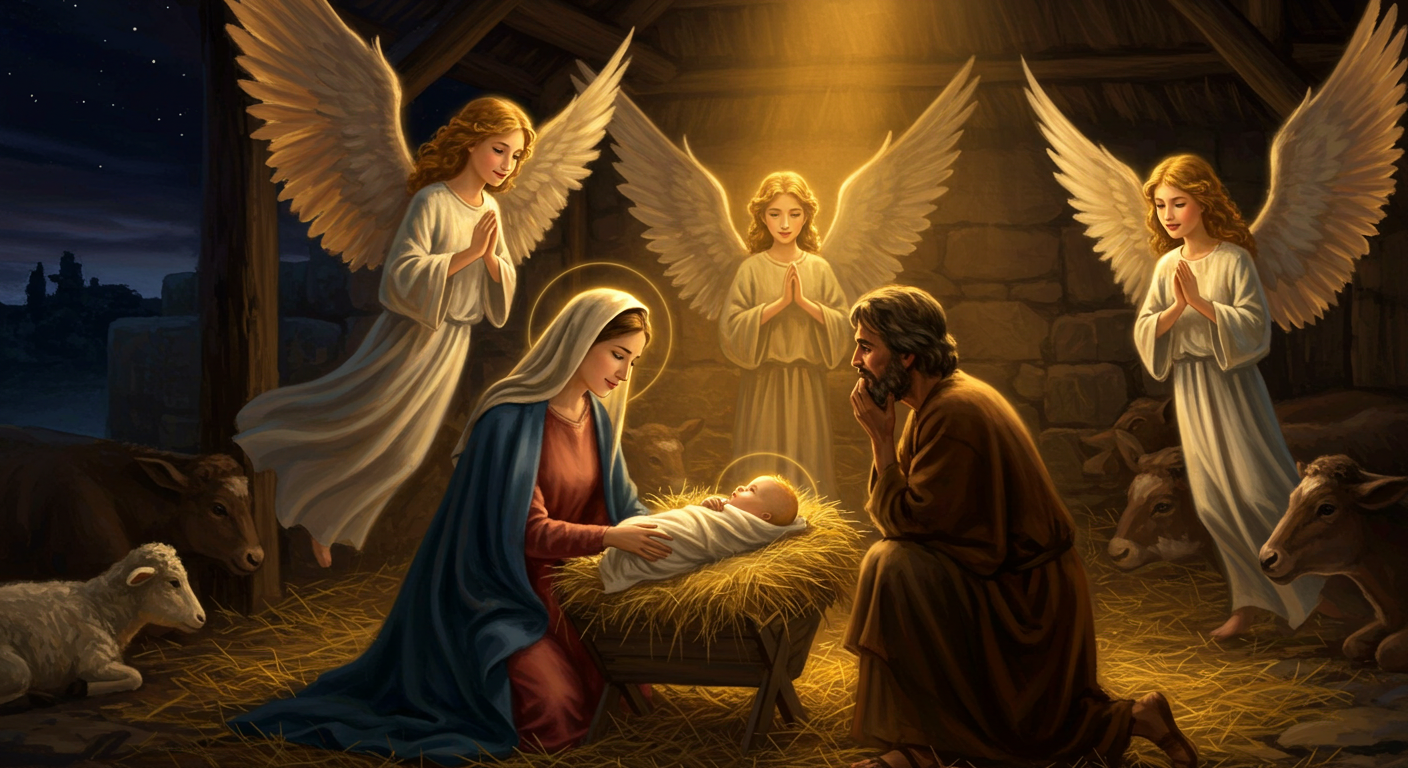
The Journey to Bethlehem
The Roman census necessitates a journey to Bethlehem, Joseph and Mary’s ancestral home. This journey, arduous and potentially perilous, sets the scene for the imminent birth.
The Inn and the Manger
Finding no room in the inn, the couple seeks refuge in a humble stable, where Jesus is born. This unassuming setting underscores the humility of the divine arrival.
The Nativity: The Birth of Jesus
The birth of Jesus is portrayed as a momentous occasion, marked by divine presence and heavenly announcements. Shepherds in the fields witness angelic pronouncements, heralding the Messiah’s arrival.
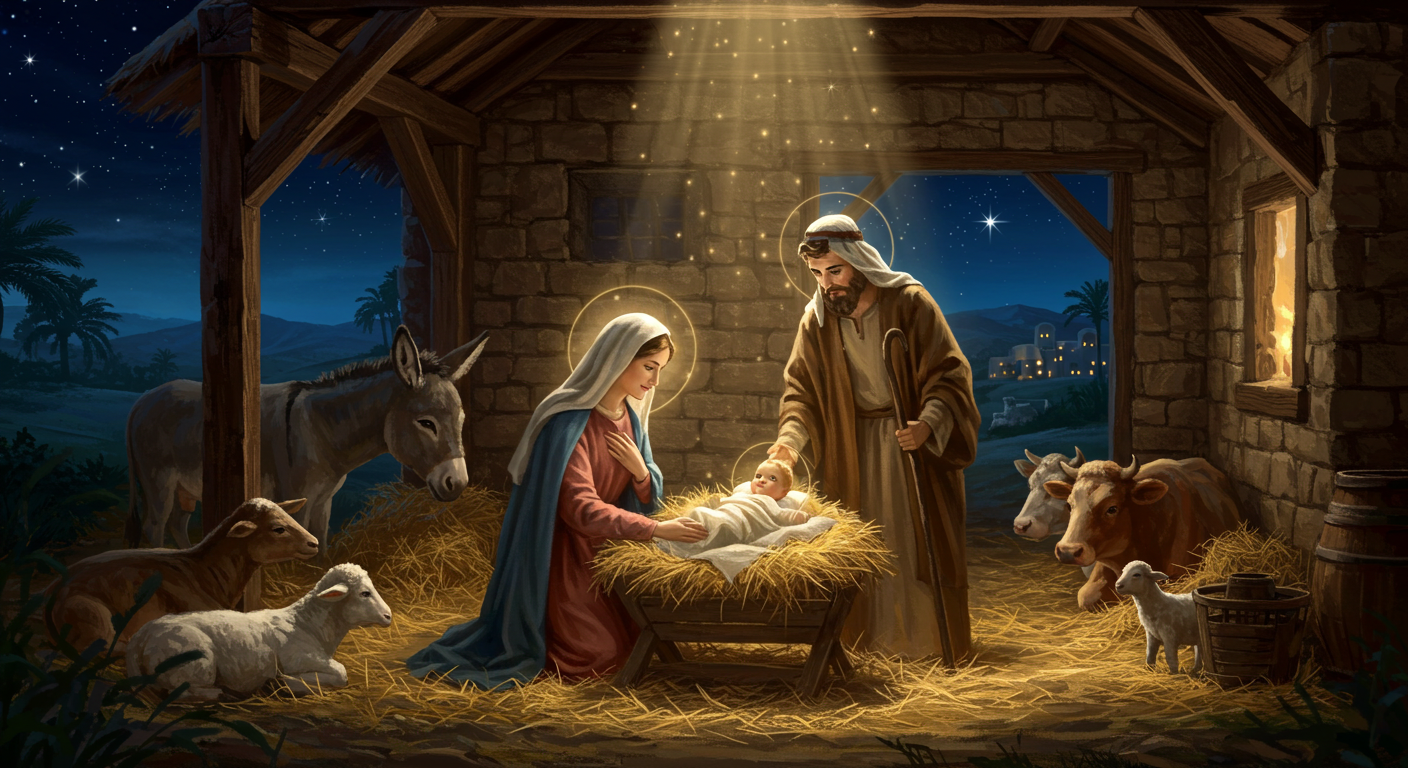
The Shepherds’ Visit
These humble shepherds, the first visitors to the newborn Jesus, represent the inclusivity of God’s message, extending beyond the elite to the marginalized and humble.
The Wise Men (Magi)
Led by a star, the Wise Men from the East arrive, bearing gifts of gold, frankincense, and myrrh. Their journey signifies the universality of the event and its global significance. Discover the symbolism behind their gifts.
The Star of Bethlehem
The Star of Bethlehem, a celestial phenomenon guiding the Wise Men, remains a subject of fascination and debate among astronomers and theologians alike. Explore scientific theories on the Star of Bethlehem.
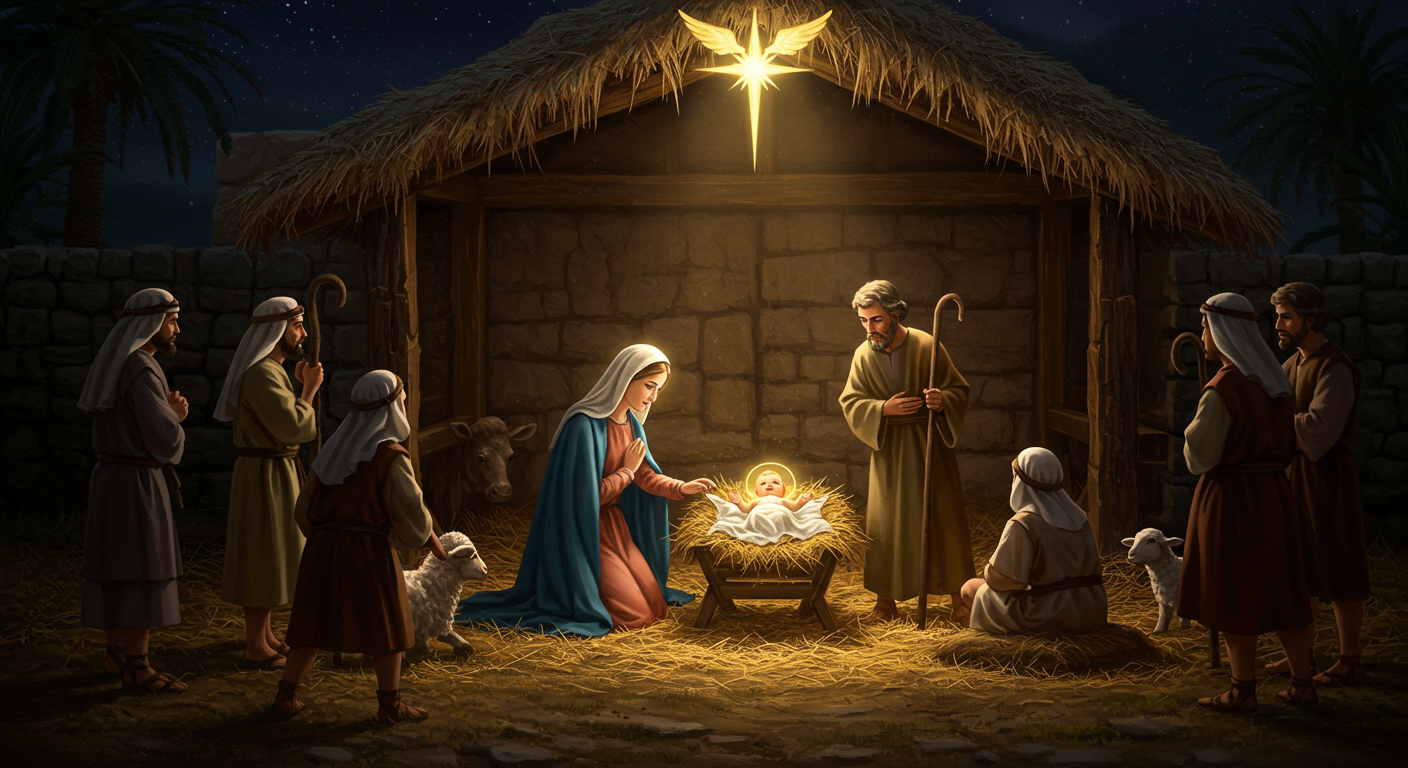
The Prophecy of Isaiah
The birth of Jesus fulfills numerous Old Testament prophecies, particularly those found in the Book of Isaiah. These prophecies provide a framework for understanding Jesus’ role as the Messiah.
The Significance of Jesus’ Name
The name ‘Jesus,’ a Hebrew name meaning ‘Yahweh saves,’ foreshadows his redemptive mission and his identity as the Son of God.
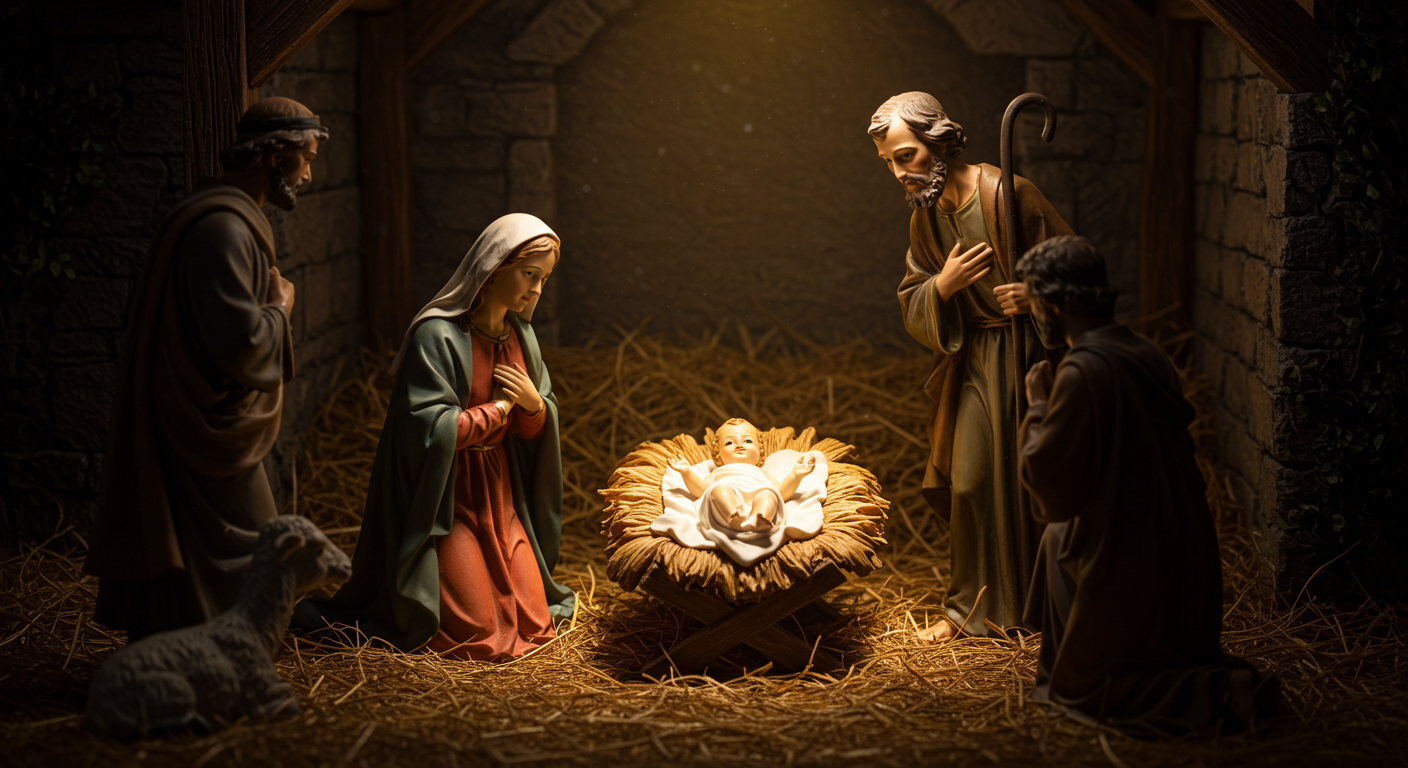
The Announcement to the Shepherds
The angelic announcement to the shepherds emphasizes the universal nature of the good news, transcending social and geographical boundaries.
The Importance of the Census
The Roman census, a seemingly mundane event, becomes a pivotal factor in the fulfillment of prophecy, leading Joseph and Mary to Bethlehem for the birth.
The Humble Beginnings
The humble setting of Jesus’ birth – a stable in Bethlehem – emphasizes the humility and simplicity of God’s intervention in human history.
The Worship of the Magi
The Magi’s worship and gifts demonstrate the recognition of Jesus’ divine status from outside the Jewish community.
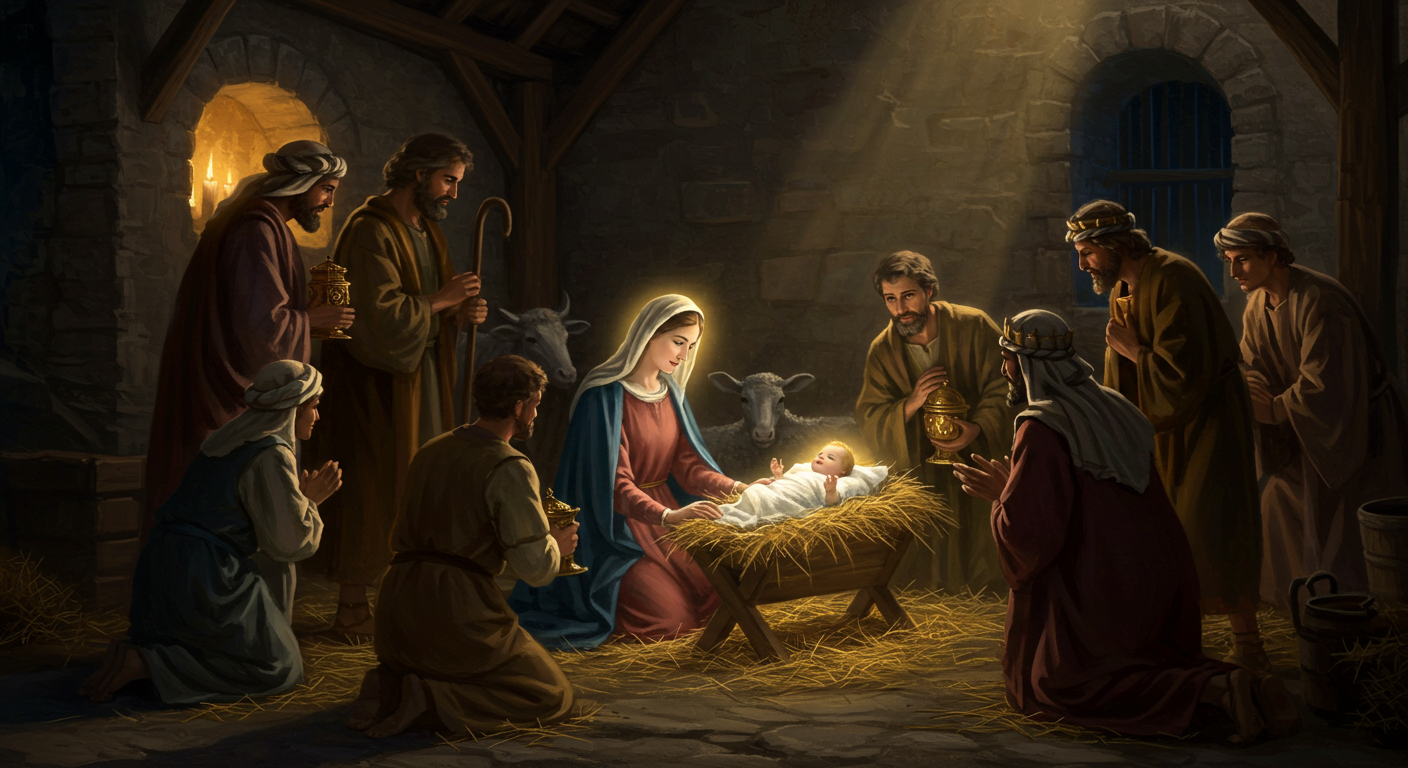
The Flight into Egypt
The subsequent flight into Egypt, prompted by Herod’s decree to kill all male infants in Bethlehem, foreshadows the challenges Jesus and his family faced.
The Significance of Christmas
Christmas, the celebration of Jesus’ birth, remains a significant cultural and religious event, uniting believers across denominations and traditions. Learn more about the history of Christmas celebrations.
Conclusion
The birth of Jesus, a story told and retold throughout history, continues to inspire awe and wonder. Its enduring legacy reminds us of the divine love and the message of hope it brings to the world. The simple story of a humble birth in a stable remains, at its core, a powerful message of faith and redemption.
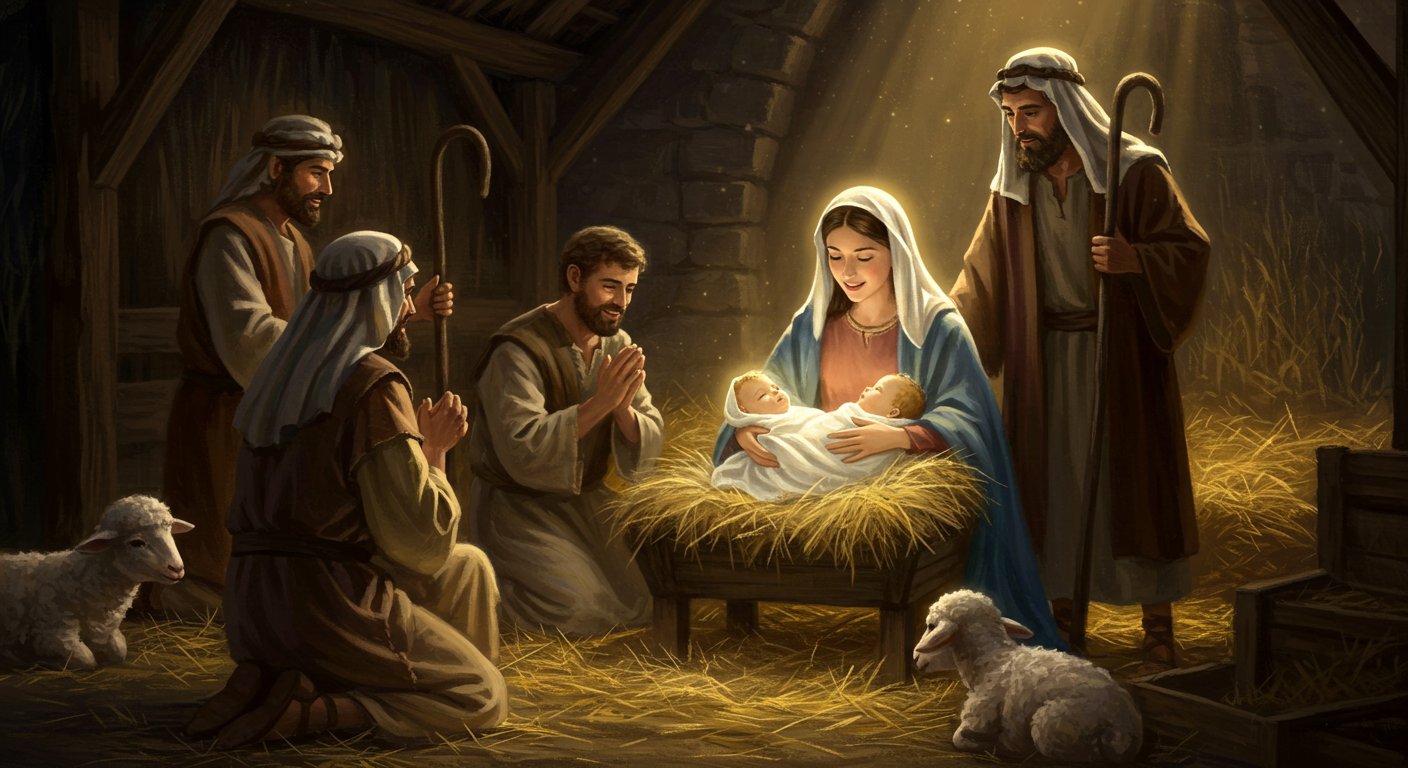
Frequently Asked Questions
What is the exact date of Jesus’ birth? The exact date of Jesus’ birth is unknown, but Christians celebrate it on December 25th.
Why was Jesus born in a manger? The Gospels say that there was no room for Mary and Joseph in the inn, so Jesus was born in a manger, a feeding trough for animals.
Who were the Wise Men? The Wise Men, or Magi, were astrologers from the East who followed a star to Bethlehem to worship the newborn king.
What is the significance of the Star of Bethlehem? The Star of Bethlehem is a celestial event described in the Bible, which guided the Wise Men to Jesus. Its exact nature remains a mystery.
Why is the birth of Jesus so important to Christians? The birth of Jesus is central to Christian belief as it marks the coming of the Son of God to redeem humanity. Explore the significance of Jesus’ life, death, and resurrection.
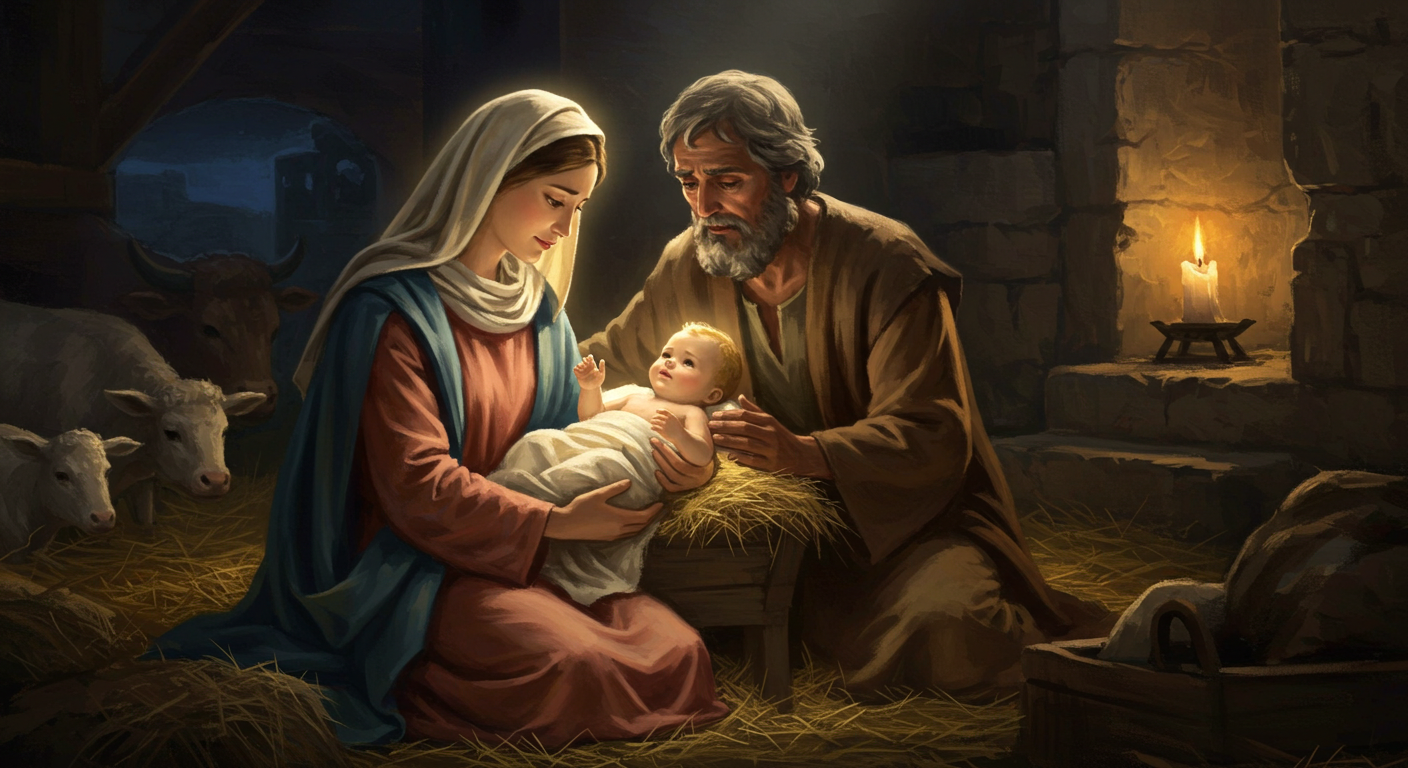
Leave a Reply